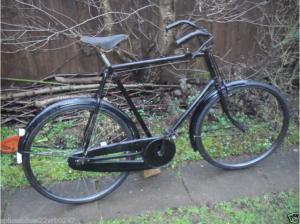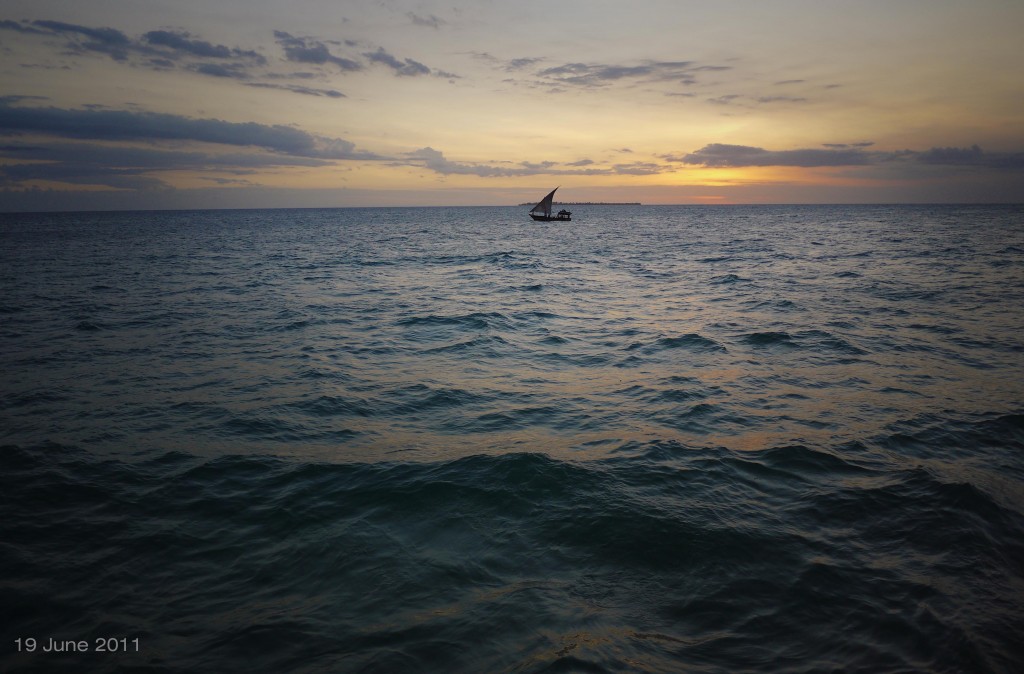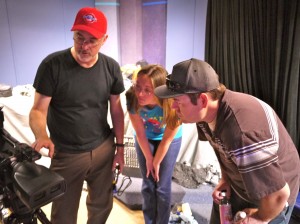Archive for June, 2011
 My One-Day Vacation
My One-Day Vacation
This entry doesn’t have much to do with the digital craft or video storytelling, although in a way it has everything to do with it. Today I’m in Wales fetching a 1937 Raleigh Roadster with a three-speed Sturmey-Archer and 28 X 1.5-in tires. When this cycle was manufactured in Nottingham two years before the outbreak of World War II there was little about it that one of average or sub-par intelligence couldn’t understand. After all this elegant machine is the quintessential mechanical device with rod-actuated brakes; the three-speed internal gearing integrated into the rear hub operated by a a push-pull cable engaging the planetary gears.
We lived in a mechanical world then, and when something went wrong with the Raleigh Roadster, it was a simple fix – easy to figure out, and easy to remedy. On the other hand, today it accomplishes little to break open a DVD player’s case and stare down a microprocessor. Troubleshooting in the digital era requires insight and understanding of theory, bits and bytes. That takes training and discipline and ongoing study.
So today I am thankful and grateful: my latest cycle acquisition is blessedly devoid of the digital complexity that defines our time.
 Greetings from Zanzibar
Greetings from Zanzibar
The East African community is awash with fabulous stories itching to be told, and that’s certainly been my impression this week as I’ve led a camera storytelling workshop here at the Zanzibar International Film Festival (ZIFF) running through 26 June 2011. Many times I’ve said that I always receive far more from my overseas workshops than I give in return; the local filmmakers being so grateful for the guidance and insight that I can provide them.
I have noticed however an interesting paradox among the filmmakers pitching their documentary ideas during this morning’s pitching sessions. First, there was the preponderance of misery-themed proposals: the poisoning of a river at a copper mine in Zambia, a massacre of villagers in Kenya in 1926; the rise to power of a warmonger in the Sudan. For Westerners these subjects while interesting hold diminishing appeal; indeed much of the world has grown weary of the near constant tales of woe and despair across the Dark Continent.
I am far more interested in the countless little stories here in Zanzibar and in the rest of Tanzania that far better illuminate the nature of daily life in this part of the world. Several recent polls of the world’s people have consistently shown East Africans to be among the happiest people on earth, far happier, for example, than the Swedes, the French, or the Canadians. Some things are definitely going right about the quality and character of life here, and I for one am dying to see more of those stories, and less of the disease, depravity and colonial victimization subjects that seem to be so dominant among many of the filmmakers.
It will be very interesting to see the finished productions on Sunday night, and see if I’ve had any noticeable impact on the filmmakers in my workshop, not only from the perspective of raw skills and craft, but also from the point of view of the choice of subject matter itself.
 Spreading the Wealth of 3D Knowledge
Spreading the Wealth of 3D Knowledge
It isn’t too often that I am able to offer a 3D camera workshop at a local community college. And this is a pity, for too often we teachers of the video storytelling craft are overly consumed with the name-brand schools, you know, the high-profile institutions that garner most of the headlines and prestige. You can blame the camera manufacturers for much of this; the prospect of significant sales in these wealthy institutions being foremost in their minds.
Still, we trainers are also partly to blame for not doing quite enough to better advertise our wealth of knowledge and enthusiasm. My June 3D workshops at Palomar College in San Marcos CA convinced me that 3D production can be just as relevant and motivational to students at more modest educational institutions. Without exception my Palomar students demonstrated the utmost willingness to take the risks necessary to excel in the new and exciting 3D arena.
To be clear we’re not necessarily talking about aspiring feature filmmakers here. Indeed I am convinced the future of 3D will be predominantly in the non-theatrical arena – in corporate, industrial, wedding and events, and education.
Thus the importance of 3D evangelists and instructors around the world to reach out to all students regardless of economic standing. The skills and confidence gained from the 3D workshop will serve them well, as the jobs and projects of the future will increasingly require an understanding of stereo principals for efficient image capture and post-production.
I welcome the opportunity to offer my knowledge and training to a wide cross section of students all over the world. As I write this I am en route to Tanzania to lead a camera workshop next week at the Zanzibar International Film Festival . While my students will no doubt learn a wide range of skills to enhance their visual storytelling I also know that I will receive far greater inspiration in return; these East African filmmakers and camera people serving up their own remarkable stories reflecting their unique experiences and insights.
http://www.ziff.or.tz/news/high-definition-workshop-barry-braverman-ziff


